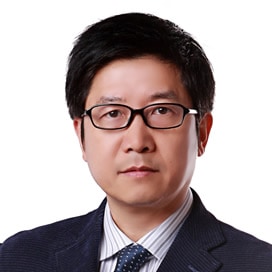Doctor Shilin Chen
Agilent supports research in traditional Chinese medicineDr. Shilin Chen is taking a groundbreaking multi-omic approach to traditional Chinese medicine. Dr. Chen directs the Institute of Medicinal Plant Development at the Chinese Academy of Medical Sciences in Beijing, which strives to identify the active ingredients in traditional Chinese medicines and make new drugs from natural products. He and his colleagues hope to deepen understanding of the mechanism by which herbal medicines disrupt diseases and identify relevant biomarkers, which could then point the way to new drug discoveries. To that end, they are using state-of-the-art instruments and integrated biology solutions from Agilent.
“Our group aims to increase the understanding of both herb function and biology by exploring and revealing their genomic information in order to provide an effective platform for herb-based investigations,” Dr. Chen says. He notes that mapping the genomes of widely used herbs will help scientists understand the complex biological processes of their active components. “This, in turn, allows us to more accurately authenticate traditional Chinese medicines and further guides us in higher cultivar breeding efficiency,” he says, “both of which are important for securing sources of traditional medicines and their active compounds.” One of the team’s primary challenges is that the scientific community currently lacks basic genetic and metabolic information about herbs (unlike plants and crops, which have established model systems). “Even using available biochemical tools, it is still difficult to find clues about genes that may determine metabolite synthesis and accumulation,” Dr. Chen says. “By collaborating with our colleagues, several species, including Ganoderma lucidum and Salvia miltiorrhiza, whose genome has been sequenced, have emerged as valuable models for studying the genetics and metabolic activities of herbs. These species have been shown to synthesize active pharmaceutical components, including triterpenes and diterpene quinones, making them ideal model systems.” Dr. Chen, who received an Agilent Thought Leader Award last year, says that his research has greatly benefited from Agilent technologies.
“We have found that Agilent is a premier enterprise, which provides practical innovations, powerful reagents/consumables, and precise instrumentation for both genomics and analytical chemistry,” he says. “We have utilized equipment from Agilent in nearly every level of our herb genomic work.” That equipment includes an automated system for liquid handling, innovative liquid chromatography and mass spectrometry systems for qualitative and quantitative research, a bioanalyzer for next-generation sequencing, and advanced software for bioinformatics. Dr. Chen reports that his research is proceeding according to plan. “Since 2010, we have attempted to establish herb genomics platforms to further study Ganoderma lucidum, Salvia miltiorrhiza, Panax ginseng, and other herbs as valuable models for investigating the genetics and metabolic activities of herbs,” he says. “We have completed sequencing six entire herb genomes and have successfully characterized a series of enzymes involved in the synthesis of pharmaceutical flavonoid, diterpenoid, and triterpenoid components.” What’s more, the team’s genome-assisted studies of Panax ginseng and Panax notoginseng have provided the framework for a new era of herb breeding based on the use of massive molecular markers through the sequencing of wild varieties and herb different cultivars. Results like that make Dr. Chen optimistic about developments within the field of traditional Chinese medicine. “In recent years, the application of herb genomics has accelerated herbal research and has provided an unprecedented opportunity to revolutionize traditional herbal medicines,” he says. “We see a bright future for traditional Chinese medicine, especially in partnership with herb genomics and thus will continue to focus our research in this area.” |

Dr. Shilin Chen
Director |
Selected publications
|
Comprehensive Characterization for Ginsenosides Biosynthesis in Ginseng Root by Integration Analysis of Chemical and Transcriptome. Herbal genomics: Examining the biology of traditional medicines. High-accuracy de novo assembly and SNP detection of chloroplast genomes using a SMRT circular consensus sequencing strategy. |